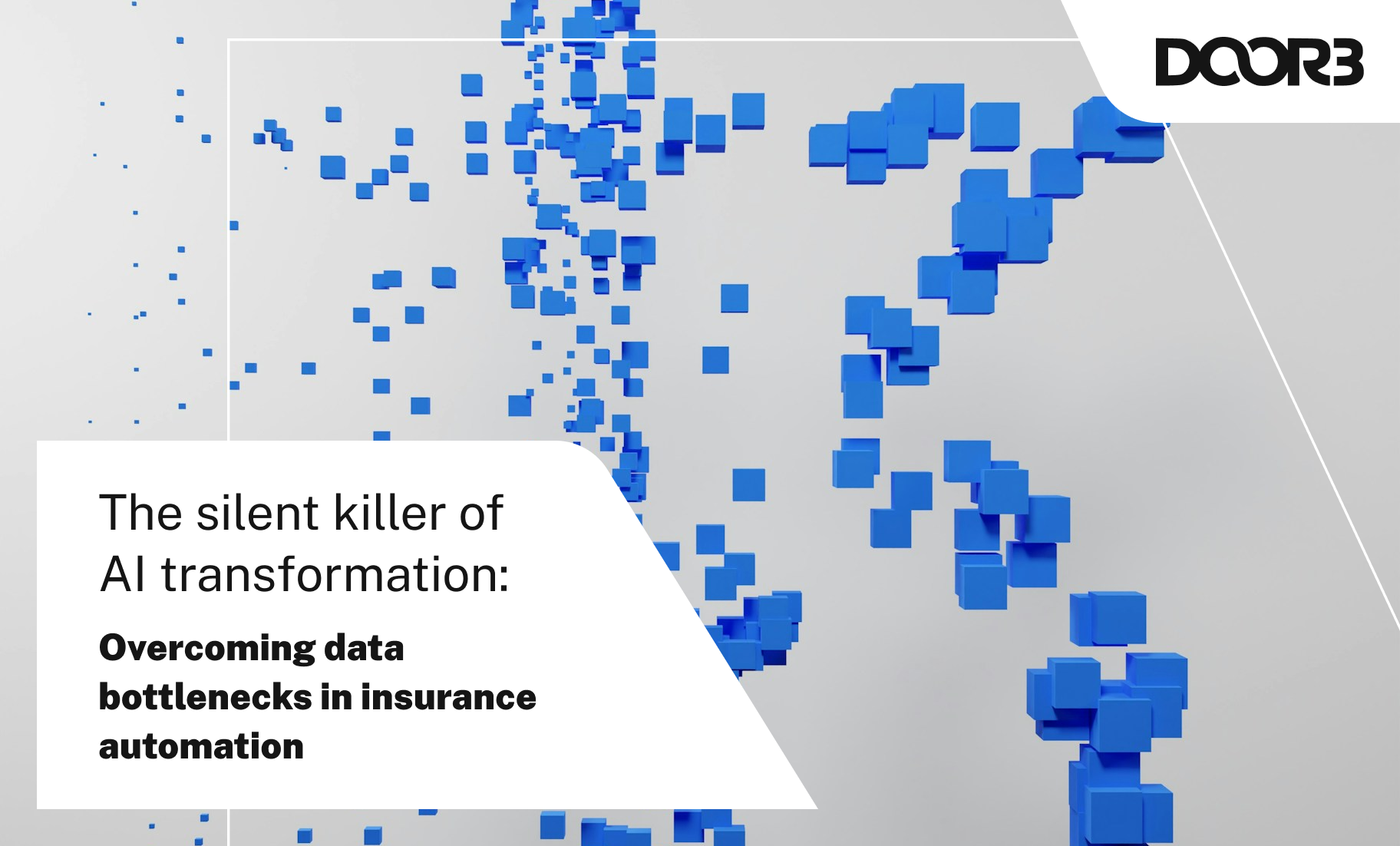Why Business Intelligence Solutions Are Essential for Scalable and Data-Driven Enterprises
06.12.2025-027353.png)
Introduction to Business Intelligence
Understanding Business Intelligence (BI)
Business Intelligence (BI) refers to the technologies, practices, and tools that help organizations collect, integrate, analyze, and present business data. Its primary purpose is to support data-driven decision-making by transforming raw data into actionable insights that drive operational and strategic improvements. Successful BI solutions ensure businesses can leverage data to give decision-makers the analytical insights to respond with precision, and adapt quickly to changing conditions.
Historical Evolution of BI Tools
The origins of BI date back to the 19th century, but it wasn’t until the 1960s that modern decision support systems emerged. The 1990s and early 2000s saw the rise of centralized data warehouses and enterprise reporting platforms. Today, BI tools have become smarter, faster, and more accessible—leveraging AI, machine learning, and real-time data processing.
What was once confined to IT departments is now available to all business units via self-service dashboards and intuitive visualizations. Platforms like Power BI, Tableau, and Qlik have helped democratize business intelligence across organizations of all sizes.
The Growing Importance of BI in Modern Enterprises
Powerful BI platforms are now an essential part of enterprise development strategies for scalability and competitive advantage. From tracking KPIs to forecasting market trends, BI helps organizations gain a competitive edge in a volatile and fast-moving economy. Decision-makers use BI tools to understand customer behavior, streamline operations, and navigate uncertainty with confidence.
The Role of Business Intelligence in Scalability
Facilitating Informed Decision-Making
Scalable organizations depend on timely, evidence-based decisions. BI tools provide real-time access to comprehensive datasets, helping leaders assess performance, evaluate risks, and seize opportunities. Instead of relying on siloed reports or outdated spreadsheets, BI offers a centralized source of truth, enhancing clarity and accountability across departments.
Streamlining Operations for Growth
As enterprises scale, complexity grows. BI systems streamline this complexity by automating data collection, reporting, and analysis. This operational efficiency frees up resources, reduces redundancies, and accelerates time-to-insight—key for growing organizations looking to stay nimble.
For example, DOOR3’s analytics reporting solutions use AI to simplify data management, making it easier for organizations to manage growth without overburdening internal teams.
Enhancing Customer Experience and Engagement
BI plays a pivotal role in improving customer experience by revealing behavioral patterns, service bottlenecks, and engagement gaps. Businesses can use this data to personalize services, refine touchpoints, and proactively address customer needs—boosting retention and satisfaction.
How Business Intelligence Supports Data-Driven Strategies
Data Collection and Integration
Data-driven strategies begin with comprehensive and accurate data. BI platforms integrate information from diverse sources—CRM systems, ERPs, marketing tools, and beyond. A well-integrated BI system ensures that every business function is informed by complete, consistent, and current data.
Data Analysis and Interpretation
With vast volumes of data at their fingertips, organizations rely on BI tools to analyze trends, segment users, identify anomalies, and benchmark performance. This interpretive layer transforms raw data into insights that stakeholders can act on.
Predictive Analytics and Forecasting
Modern BI solutions extend beyond retrospective analysis to include predictive modeling. Leveraging historical data and machine learning algorithms, BI tools can forecast demand, anticipate market shifts, and inform strategic decisions before they become reactive necessities.
Key Components of Business Intelligence Solutions
Data Warehousing
A data warehouse is the backbone of most BI systems—providing a centralized, structured repository for historical and current data. It ensures consistency across reports and analytics while supporting complex queries and historical comparisons.
Data Mining
Data mining uncovers patterns and relationships within large datasets. Through clustering, classification, and association techniques, businesses gain insights that would be nearly impossible to detect manually—driving smarter decision-making at scale.
Reporting and Dashboards
BI tools excel at visualizing complex data. Dashboards deliver real-time overviews of performance metrics, while reports offer deeper dives into trends and progress. Customizable dashboards empower non-technical users to explore and present data independently.
Performance Metrics and KPIs
Key Performance Indicators (KPIs) provide measurable benchmarks for success. BI platforms allow businesses to define, track, and adapt KPIs that align with strategic objectives—creating a dynamic feedback loop that informs continuous improvement.
Benefits of Implementing BI Solutions
Enhanced Operational Efficiency
By automating reporting and centralizing data access, BI reduces manual work, eliminates data silos, and minimizes the risk of human error. Teams can move faster with less friction, contributing to smoother workflows and higher productivity.
Improved Strategic Planning
Business intelligence provides decision-makers with the clarity to plan effectively. With accurate forecasting and real-time insights, strategic decisions become proactive rather than reactive—based on evidence, not guesswork.
Competitive Advantage
Enterprises that effectively harness business intelligence gain a competitive edge through faster insights, better customer understanding, and data-backed innovation. They can adapt more quickly, allocate resources wisely, and stay ahead of market trends.
Cost Reduction and Profitability
BI improves profitability by identifying inefficiencies, highlighting cost-saving opportunities, and streamlining budget planning. Over time, BI systems can reduce redundant spending and unlock new revenue opportunities through smarter allocation.
Challenges in Adopting Business Intelligence
Despite its benefits, BI implementation comes with challenges. Organizations must navigate issues including data quality and consistency, legacy system integration, scalability, and usability.
Working with an expert technology consultancy like DOOR3 can help organizations avoid common pitfalls by ensuring that BI tools are tailored to business needs, not just technical specifications.
Choosing the Right Business Intelligence Solution
Evaluating Business Needs
The first step is understanding what the business hopes to achieve. Is the focus on financial reporting, customer insights, operational efficiency, or all three? Clarity of goals is essential for choosing the right BI strategy.
Assessing Technology Compatibility
Enterprises must ensure the chosen BI platform integrates seamlessly with their existing tech stack. Compatibility with databases, APIs, cloud infrastructure, and security protocols is critical for long-term success.
Vendor Comparison and Selection
Not all BI tools are created equal. Some excel in visualization (e.g., Tableau), others in integration (e.g., Power BI), and others in ease of use (e.g., Domo). Factors like cost, scalability, support, and feature set should inform the selection process. For more guidance, refer to DOOR3’s digital product strategy insights.
Future Trends in Business Intelligence
Artificial Intelligence and Machine Learning Integration
AI is transforming BI by enabling intelligent recommendations, anomaly detection, and automated analysis. As algorithms become more sophisticated, A well-designed data visualization approach is foundational for getting value from BI systems.
Real-Time Data Processing
Organizations increasingly demand real-time insights. Modern BI tools process streaming data from IoT devices, customer interactions, and transaction systems, enabling moment-to-moment agility and responsiveness.
Increased Focus on User Experience
BI adoption depends on usability. Future tools will prioritize intuitive interfaces, natural language queries, and personalized dashboards—ensuring that data is accessible not only to analysts but to every stakeholder.
Conclusion
Business intelligence is no longer a luxury—it’s the operational backbone of scalable, data-driven enterprises. By enabling actionable insights, improving efficiency, and supporting long-term strategy, BI equips organizations to thrive in today’s data-saturated world.
However, success with BI doesn’t happen by accident. It requires the right technology, processes, and partnerships. At DOOR3, we help businesses unlock the full value of their data with tailored BI implementations that grow with you.
Ready to make smarter decisions with your data? Explore DOOR3’s business intelligence capabilities or connect with our team to discuss your data-driven goals.



